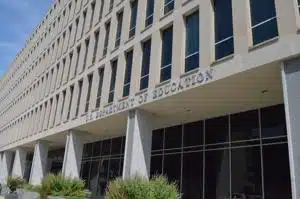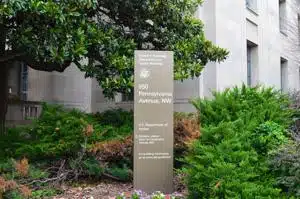(The Center Square) – Members of food deliver app DoorDash’s grassroots advocacy group are reaching out to lawmakers on Capitol Hill seeking tax-free tips that lawmakers are considering for other tip-based service workers.
President Donald Trump campaigned on the issue as did Democratic candidate Kamala Harris. Trump has been pushing Congress to pass legislation that would let workers collect tips without paying taxes on them. However, the legislation is for employees, not the independent contractors that power DoorDash.
Sharon McBride, global head of mobilization at DoorDash, said it is the first time that the company’s DashRoots advocacy network has worked on a federal issue.
DashRoots recently crossed a milestone by reaching 120,000 members. Some 40,000 Dashers used the advocacy network to ask Congress to include independent workers in federal No Tax on Tips legislation. They sent more than 100,000 letters to members of Congress, McBride said.
“These are real people, and we want to make sure that they’re getting a chance to make their views heard,” she said.
In addition to writing letters, some Dashers will be visiting Capitol Hill.
“We’re doing a huge congressional fly-in next week,” McBride said. “We’re having 30 Dashers and merchants come. And we have, I think, about 35 meetings set up with members.”
So far, most of DashRoots’ work has been done at the local and state level. The goal of the group is to give Dashers, merchants and consumers the tools they need to lobby lawmakers, McBride said.
The existing No Tax on Tips bill excludes independent contractors. It has support from the National Restaurant Association, International Franchise Association and Professional Beauty Association.
Drivers for DoorDash, which the company calls Dashers, get base pay, promotional pay and tips. Tips are always on top of base pay. The percentage of overall pay that comes from tips varies based on multiple factors.
“Tips are tips, no matter how they’re earned,” one Dasher wrote in a letter as part of the campaign. “If some tips are tax-exempt, mine should be too.”
For waitstaff, bartenders and delivery drivers and other tipped workers, tips can make up a significant portion of total income, often supplementing base wages that may fall below the minimum wage in some states, according to a Tax Foundation report.
The Tax Foundation and the Peter G. Peterson Foundation both oppose the proposed legislation.
“Despite its populist allure, exempting tips, overtime, and bonuses from taxation is a flawed idea that undermines economic fairness, distorts labor markets, and jeopardizes tax revenues,” Abir Mandal, a senior policy analyst at the Tax Foundation, wrote. “First, it introduces severe horizontal inequity in the tax code. Two workers earning the same annual income could face vastly different tax burdens simply because of the nature of their livelihoods.”
Tipped workers accounted for about 1.7% of the national workforce in 2024, according the U.S. Census Bureau.
The Yale Budget Lab estimated the No Tax On Tips legislation would help about 3% of families in 2026. It further estimated that average tax cut for families who benefit would be about $1,700, although for bottom-quintile families that number is $200. The lab estimated such legislation would cost $100 billion over the next decade. The Committee for a Responsible Federal Budget estimated the figure would be even higher: $150 billion to $250 billion over ten years, depending on the details.
“Excluding tips from taxation would create a tax preference for tips over other types of income that could lead to a larger shift towards lower base pay and higher tipped income,” the Peter G. Peterson Foundation noted. “The extent to which taxpayers would attempt to reclassify income depends in large part on what guardrails policymakers and regulators put in place to deter such behavior.”
When U.S. Sen. Ted Cruz, R-Texas, introduced the No Tax on Tips legislation in January, he said Republicans should be the party to back it.
“I’ve long believed the GOP should be the party of bartenders, of waiters and waitresses, and this bill is an important step to ensure we are addressing the economic needs of working Americans,” Cruz said at the time.



















































